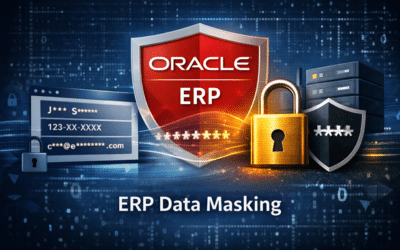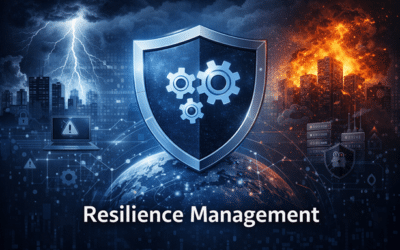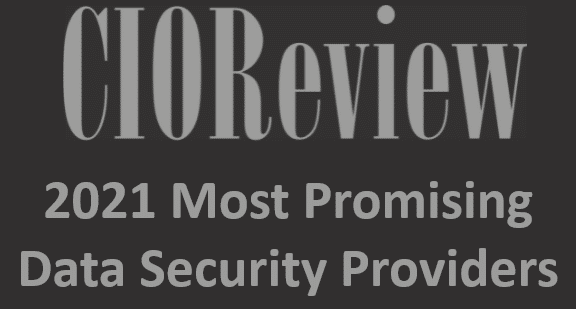
Data Compliance and Salesforce
05
AUGUST, 2021
by Alexander Fridman
Salesforce remains the top choice for customer relationship management (CRM), with a 19.5% market share. The company provides more than 150,000 organizations with powerful analytics, marketing automation, and business development services. Without a doubt, Salesforce is a key business enabler—and a must-have tool for any company that’s serious about maximizing data.
That said, it’s also a bit risky from a data compliance and security standpoint. The main issue is that Salesforce is built for managing customer relationships—not for analyzing, organizing, and preparing information. If you use Salesforce without an underlying data management component, you may want to reconsider this.
Keep reading to learn all about how data compliance works, where Salesforce falls short, and how your business can avoid these pitfalls and remain compliant.
What Is Data Compliance?
In short, data compliance is a formal process for protecting data against loss and corruption.
There is no single way to be compliant. Industries have different frameworks for protecting information. In addition, companies have specific compliance protocols and standards.
When data is compliant, it meets specific guidelines for a particular standard. On the flip side, data can also be noncompliant, meaning the company is storing and managing it in a way that violates a certain law or regulatory requirement.
Why Is Data Compliance Important in Salesforce?
To illustrate why data compliance is important in Salesforce, think of how a piping system works. Salesforce is like a pipeline, carrying data across the organization. Before water makes it to the spigot, it needs to go through a purification and treatment process to ensure it’s safe for use. And the same is true with data.
Just as unclean water can lead to illness, unclean data can leak into production and cause privacy violations, putting your entire organization and customers at risk. As such, there needs to be an underlying framework in place for analyzing, processing, and transforming data before it goes into Salesforce.
This is particularly important in heavily regulated industries like finance and healthcare, where strong data protection policies exist. For example, the financial industry has the Safeguards Rule, which forces companies to protect customer data. There is also the financial privacy law, which limits how companies collect and disclose information. Likewise, the healthcare industry abides by the Health Insurance Portability and Accountability Act (HIPAA) and the Health Information Technology for Economic and Clinical Health (HITECH) Act.
The Consequences of Using Noncompliant Data
Up until a few years ago, privacy was essentially an afterthought for companies. But now, companies face rising pressure from consumers, watchdog agencies, and governments to protect private data. In many ways, privacy is now equally as important as security.
Here’s a breakdown of what can happen when companies use noncompliant data in their sales, marketing, and software development strategies.
You May Lose Customer Trust
Consumers are becoming increasingly vocal about privacy violations. In one study, 71% of respondents said they would stop doing business with a company if it gives away sensitive data without permission.
It takes years to build customer trust and one violation to lose it forever. This is why compliance is so important.
Customers May Seek Out Competitors
More and more companies are using privacy and data compliance as a differentiator.
In light of this, companies that continue to violate consumer privacy risk losing customers to organizations that operate with greater transparency and care.
Governments Can Impose Stiff Fines and Penalties
Companies that disregard consumer privacy laws now risk facing severe penalties. For example, the EU’s General Data Protection Regulation (GDPR) carries a fine of up to about $24.1 million or 4% of global turnover, whichever is higher.
The US currently lacks a federal privacy framework. However, several states like California, Colorado, and Virginia now have strict privacy laws and penalties for companies that violate consumer privacy. Looking ahead, more states could follow suit.
Top Data Compliance Challenges in Salesforce
As you can see, it’s very important to take data privacy seriously. This is especially true if your company is accelerating its data strategy and pumping large volumes of information through Salesforce.
With this in mind, here’s a breakdown of some of the top data compliance challenges companies face with Salesforce.
1. Weak Identity and Access Management (IAM)
Companies often make the mistake of granting too much user authentication in Salesforce. This is very evident in small teams, which tend to be overly trusting with user rights and privileges. It’s also a major issue with large organizations, where large numbers of employees, partners, and consultants access data on a regular basis. Excessive authorizations can open the door to unauthorized users accessing sensitive data and making changes.
To avoid this fate, companies need to clamp down on IAM when using Salesforce to prevent data compliance violations from occurring. This may seem counterintuitive for teams that need to move quickly and streamline operations. But by tightening access and control, you ultimately reduce threats and violations, and you speed up production.
2. Poor Data Visibility
Businesses are collecting more data than ever before. This trend is bound to accelerate in the coming years, as more connected systems and devices come into existence.
To that end, companies often struggle to keep track of data as it moves across disparate storage environments and applications like Salesforce. This is very risky. Once you lose track of data, it becomes impossible to protect it.
It is therefore necessary to maintain complete visibility across data throughout its entire life cycle. This way, you can always tell where data originated, who has access to it, and how team members are using it.
3. Insecure Integrations
Salesforce integration is now a top demand for businesses when sourcing apps. However, not all third-party apps are trustworthy. Businesses often establish weak connections into Salesforce, making it easy for sophisticated intruders to gain backdoor access.
When integrating Salesforce with third-party applications, it’s necessary to thoroughly inspect the APIs that you’re using. Further, you need to continuously monitor third-party apps to detect unauthorized behavior and prevent them from silently pilfering data in the background. Setting and forgetting is a surefire way to experience data breaches and security violations.
Reducing Salesforce Compliance Issues Through Automation
The best way to avoid security violations is to process data before pumping it into Salesforce. For the best results, consider investing in a platform for automatically profiling, masking, and validating data.
Enter Enov8, which offers a purpose-built data compliance suite. Enov8 makes it easy to identify where data security issues exist using automated intelligence. By the time data winds up in production, you can rest assured that it’s clean, secure, and ready for action.
What’s more, Enov8 removes the burden of having to stay on top of the rapidly evolving data compliance landscape. Regulations constantly change, and it’s important to stay ahead of the curve and learn about changing standards before they become requirements. Enov8 automates this process, ensuring that your business is always up to date with the latest data compliance rules. This, in turn, frees your IT personnel to focus on higher-level tasks.
Salesforce and Enov8: A Winning Combo
Your company wouldn’t be where it is today without Salesforce. But the next step is to protect your investment and tighten data compliance.
Enov8 offers a one-stop shop for data compliance and security. The platform is guaranteed to reduce risk and improve the way your company handles data. For more information about Enov8, check out what the Data Compliance Suite can do.
Post Author
This post was written by Justin Reynolds. Justin is a freelance writer who enjoys telling stories about how technology, science, and creativity can help workers be more productive. In his spare time, he likes seeing or playing live music, hiking, and traveling.
Relevant Articles
Lower Environments: Understanding Their Role
Table of contentsWhat Is a Lower Environment?Types of Lower EnvironmentsWhy Lower Environments MatterClassical Architectural Assets for Lower EnvironmentsBenefits of Architectural Assets in Lower EnvironmentsUse Cases and ExamplesBest Practices for Implementing...
A Detailed Walkthrough of Oracle ERP Data Masking
Oracle ERP systems sit at the operational and financial core of large enterprises. They manage general ledger data, procurement and supplier records, payroll and HR information, and a wide range of transactional and reporting data that is both business-critical and...
Securing Microsoft Fabric Data for AI
Executive Summary Microsoft Fabric is rapidly becoming a core platform for enterprise analytics and AI. As organisations increasingly use Microsoft Fabric to support artificial intelligence and machine learning initiatives, the importance of protecting sensitive data,...
Dynamics 365 Data Masking: A Guide
Microsoft Dynamics 365 environments typically contain a mix of customer, financial, and operational data that is both business-critical and highly sensitive. While this data is essential for day-to-day operations, it also creates risk when copied into non-production...
Resilience Management: A Definition and Guide
Modern enterprises operate complex, interconnected systems where disruption is inevitable. Outages, failed releases, supplier issues, cyber incidents, and human error are no longer rare events but routine operational risks. In this environment, success is less about...
What is Release Management? An In-Depth Explanation
Do you want to ensure that your software releases meet the highest quality standards, while also satisfying security and compliance requirements? Release management is a crucial process that can help you achieve this goal. In today’s fast-paced business world, where...









